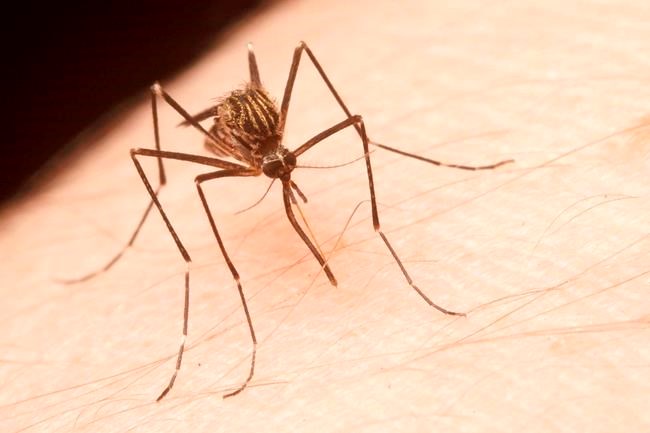A wet spring has the local health unit concerned that it could help lead to a rise in the mosquito population this summer and potentially West Nile virus.
Wellington-Dufferin-Guelph Public Health is reminding the public to reduce the risk of mosquito bites and potential exposure to
Anything from flower pots, wheelbarrows, kids swimming pools, rain barrels and old tires can offer safe haven for breeding once the weather turns warm, the health unit says.
While mosquitoes can be a nuisance, the WDGPH is more concerned about the potential for West Nile Virus.
"If you have heavy rains and then three or four days of sun with standing water there, then that's where it becomes a problem," said Shawn Zentner, manager of health protection with the health unit, in an interview.
"The end of May and beginning of June" is prime time for mosquito breeding, although they do breed several times throughout the summer, Zentner said.
The health unit spends roughly $110,000 a year for a private contractor to run a larvicide program, primarily focusing on catch basins that collect water run-off.
They only use the larvicide once testing shows a location does have mosquito larvae, Zentner said. The larvicide works for 30 to 60 days, so the same locations will be tested again later.
“Some people when infected will experience flu-like symptoms and very rarely in a few cases there is inflammation of the brain and spinal column which may result in permanent disability or death,” said Dr. Nicola Mercer, medical officer of health and CEO for WDGPHealth in a news release.
There was only one confirmed case in 2016 and only five since 2011.
Testing has also seen a great reduction in the quantity of the type of mosquito species that can infect people, the culex variety.
While realizing that the health unit's larvicide program isn't the only reason for the reduction, given nature's ebbs and flows, Zentner said only 1.3 per cent of mosquitoes trapped and tested last summer were of that strain, compared to 27 per cent five years ago.
The health unit is open to being contacted by the public who would like an area of standing water treated, particularly catch basin's on their property.
Call 1-800-265-7293 ext. 4753 for more information or visit wdgpublichealth.ca.
